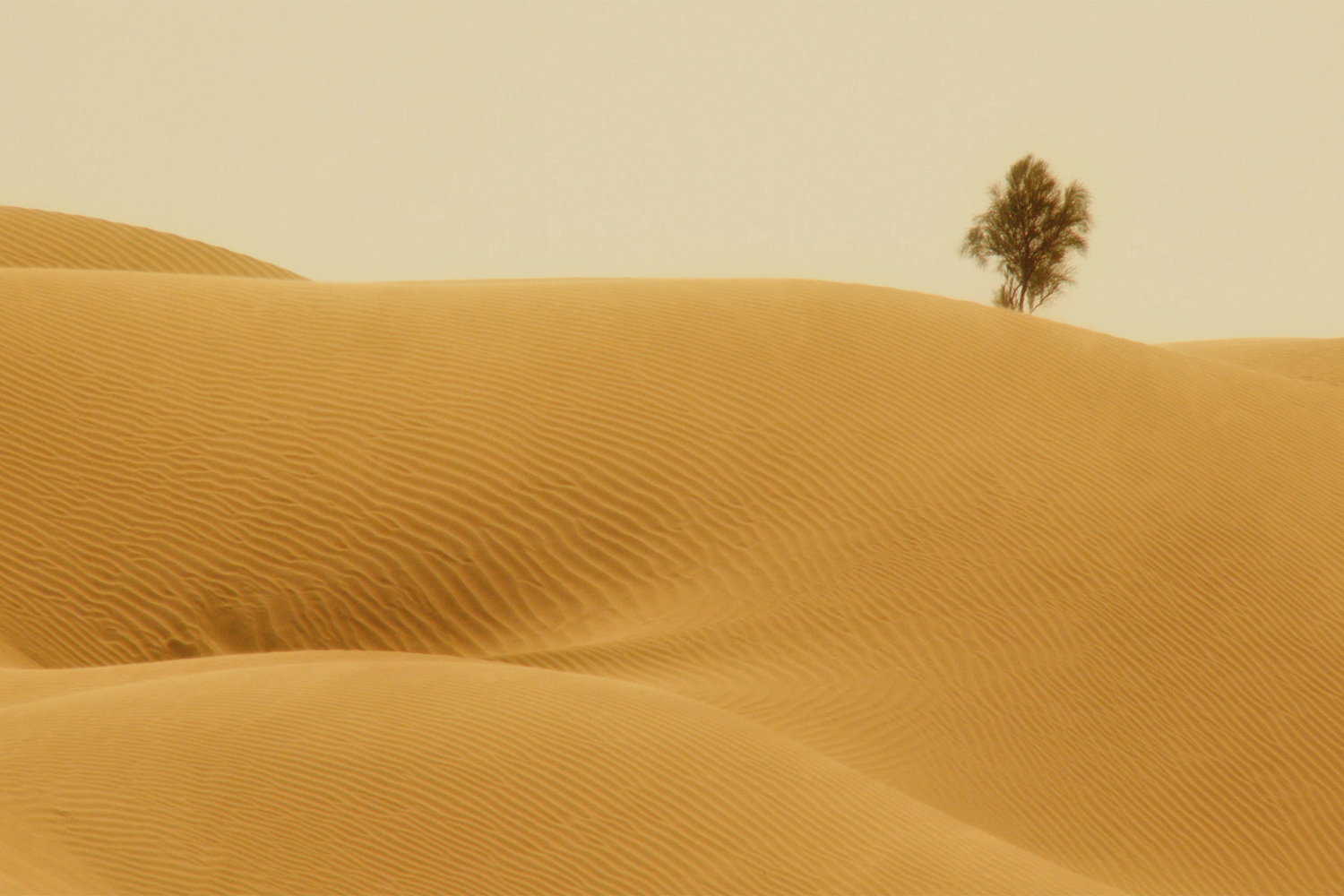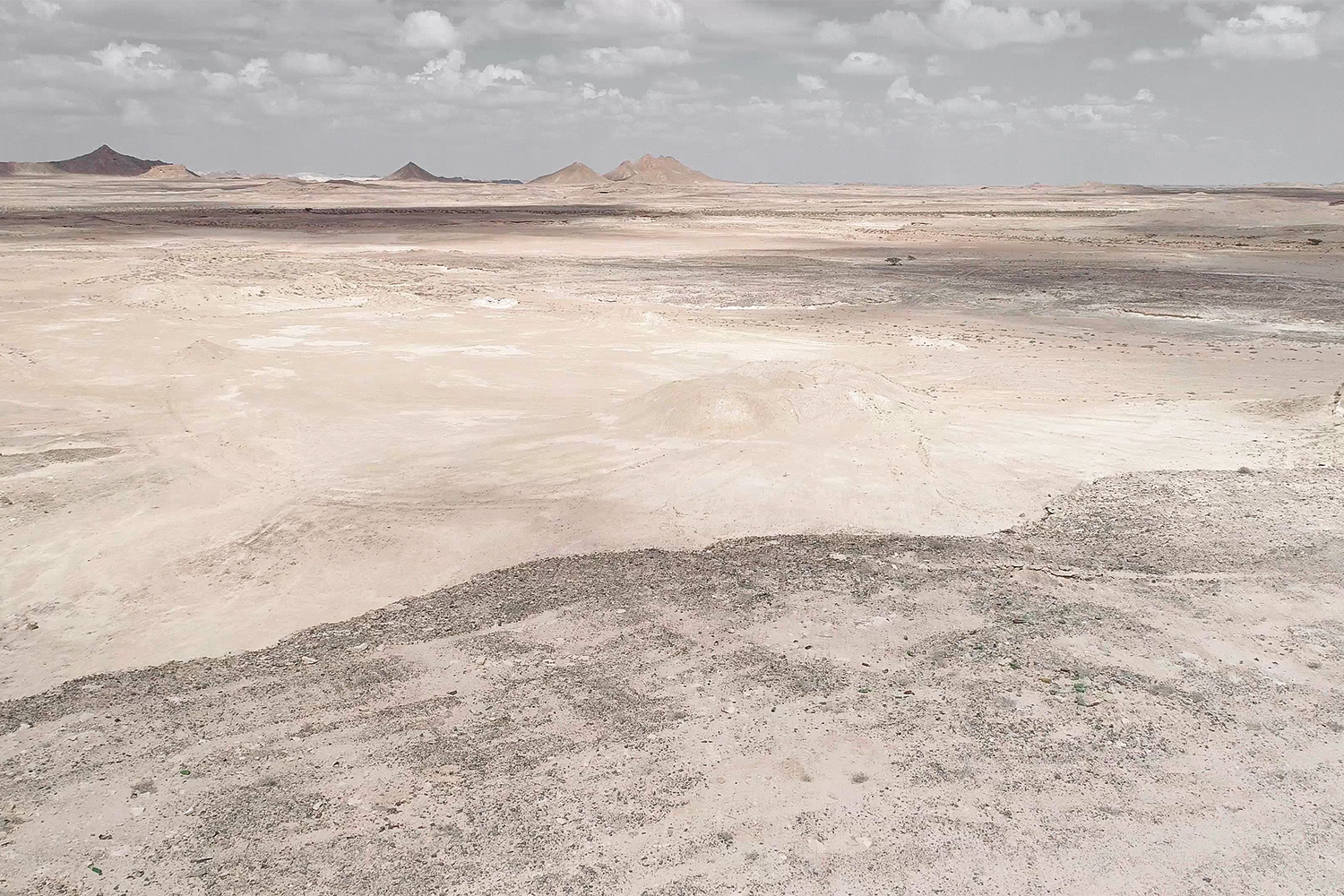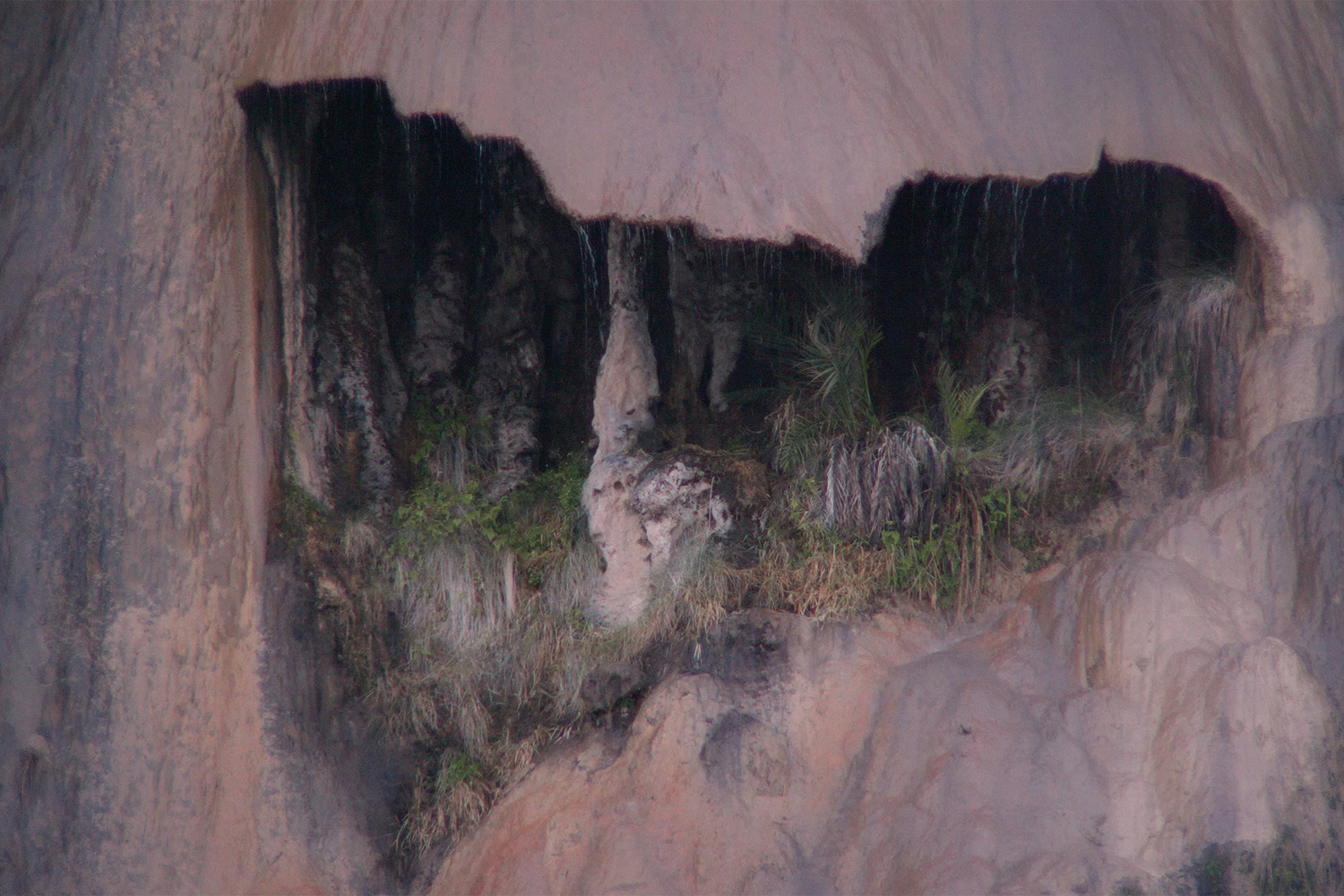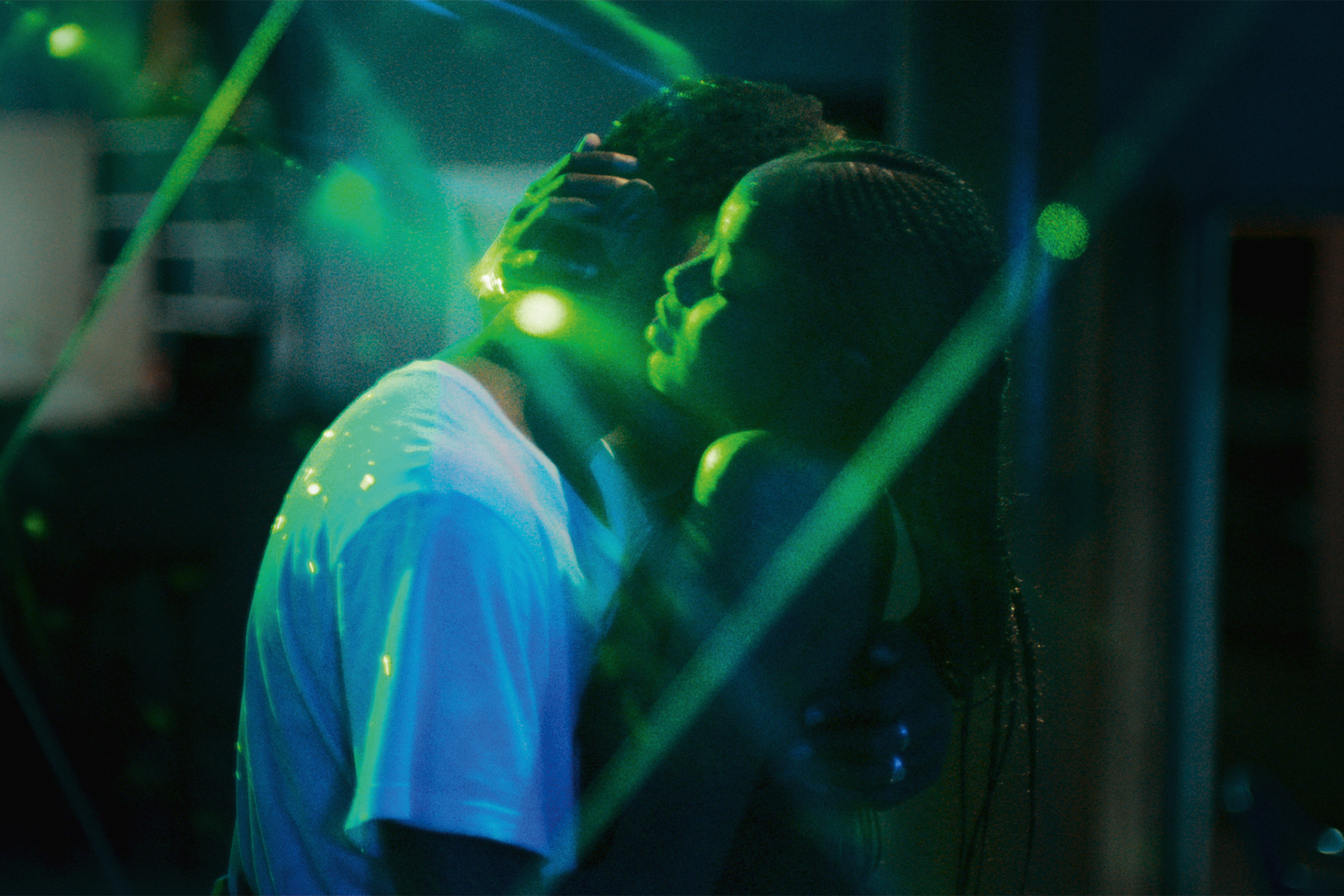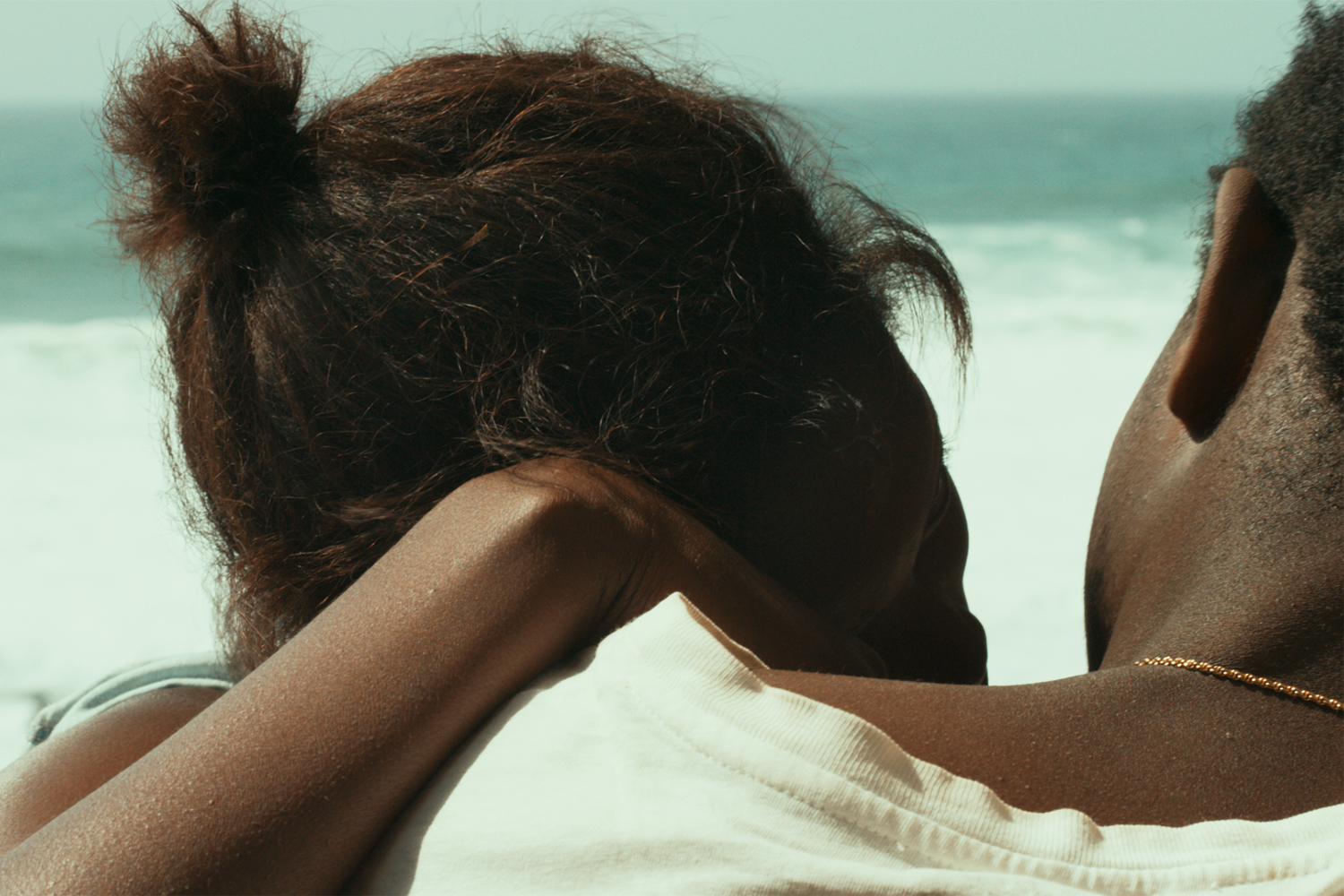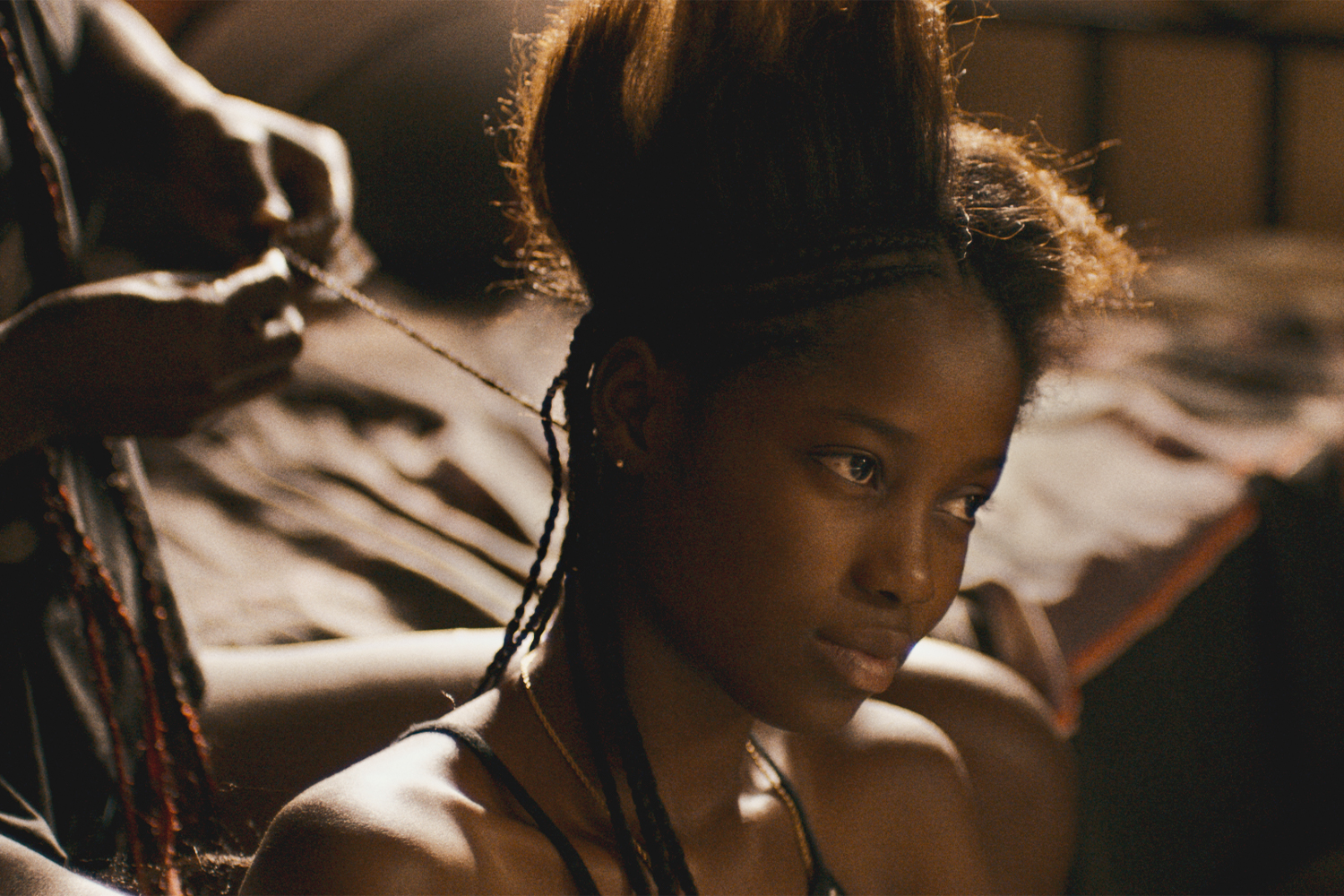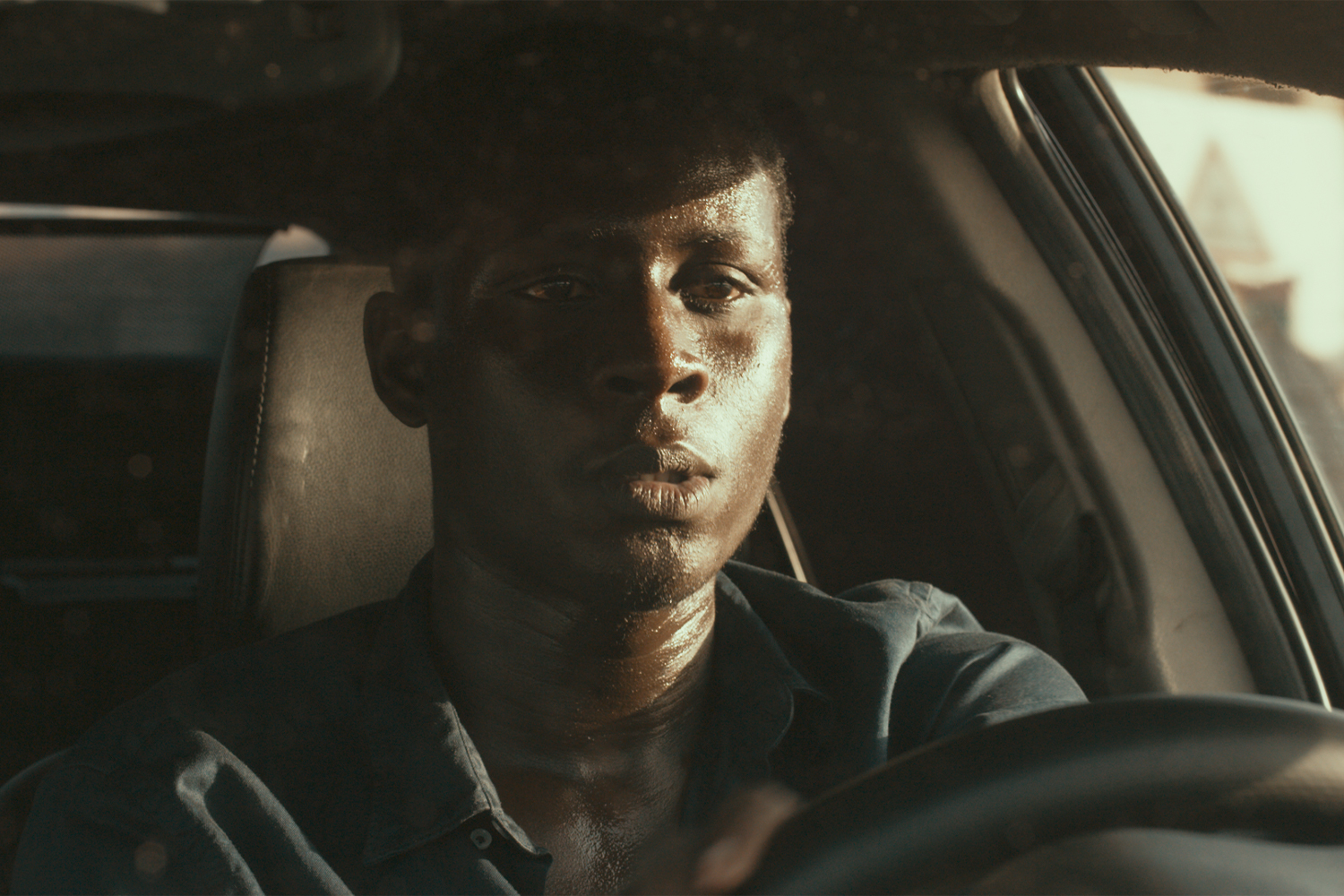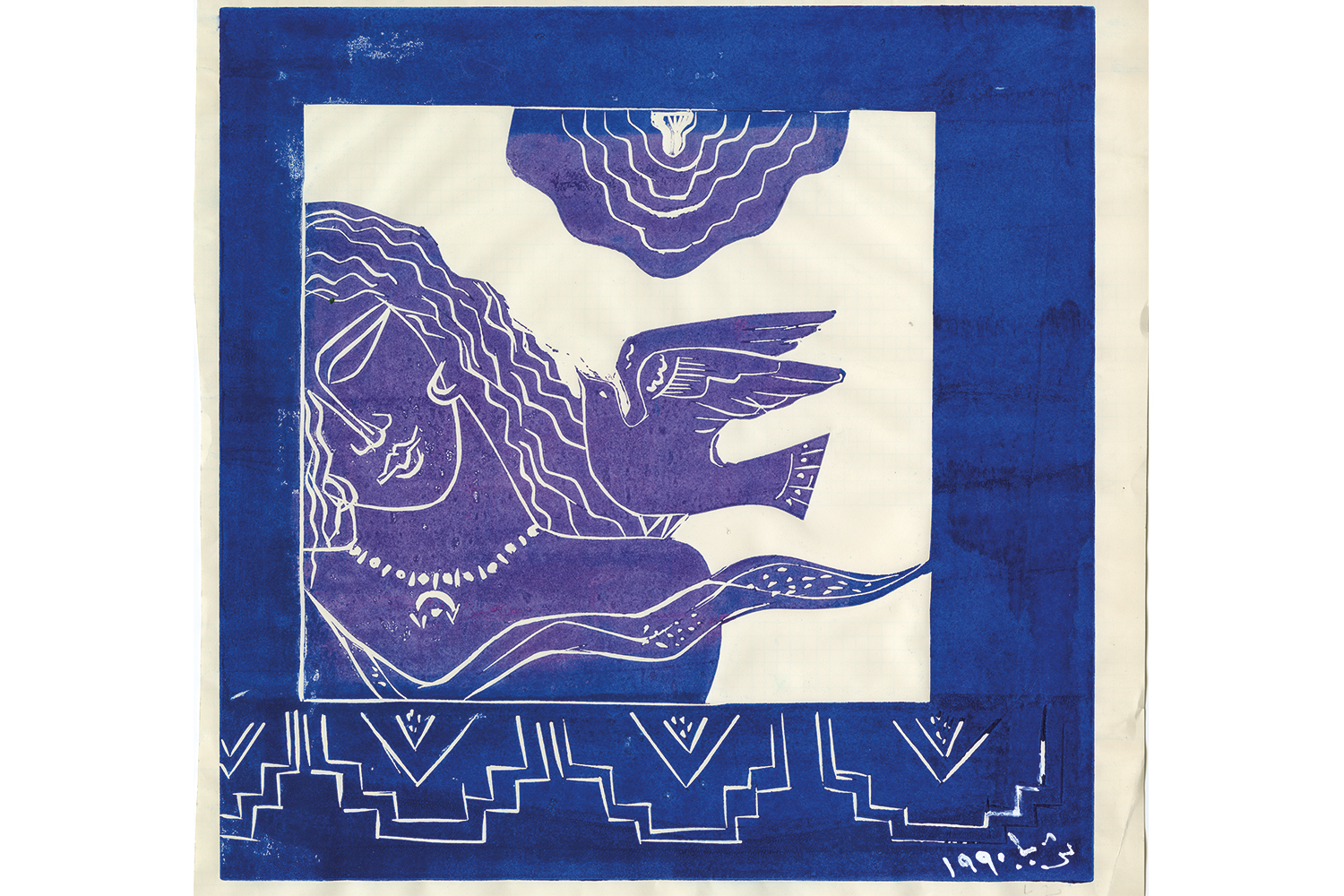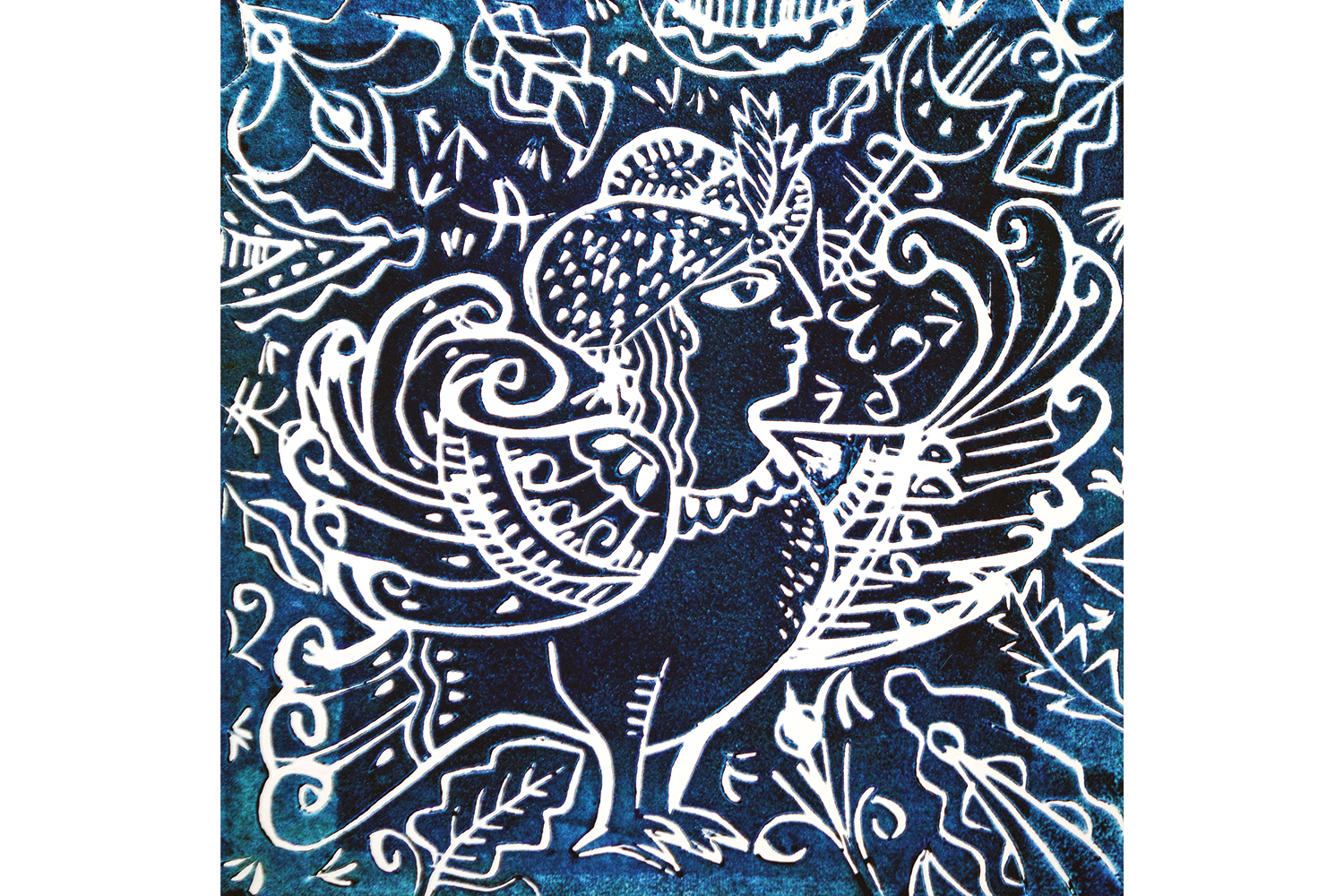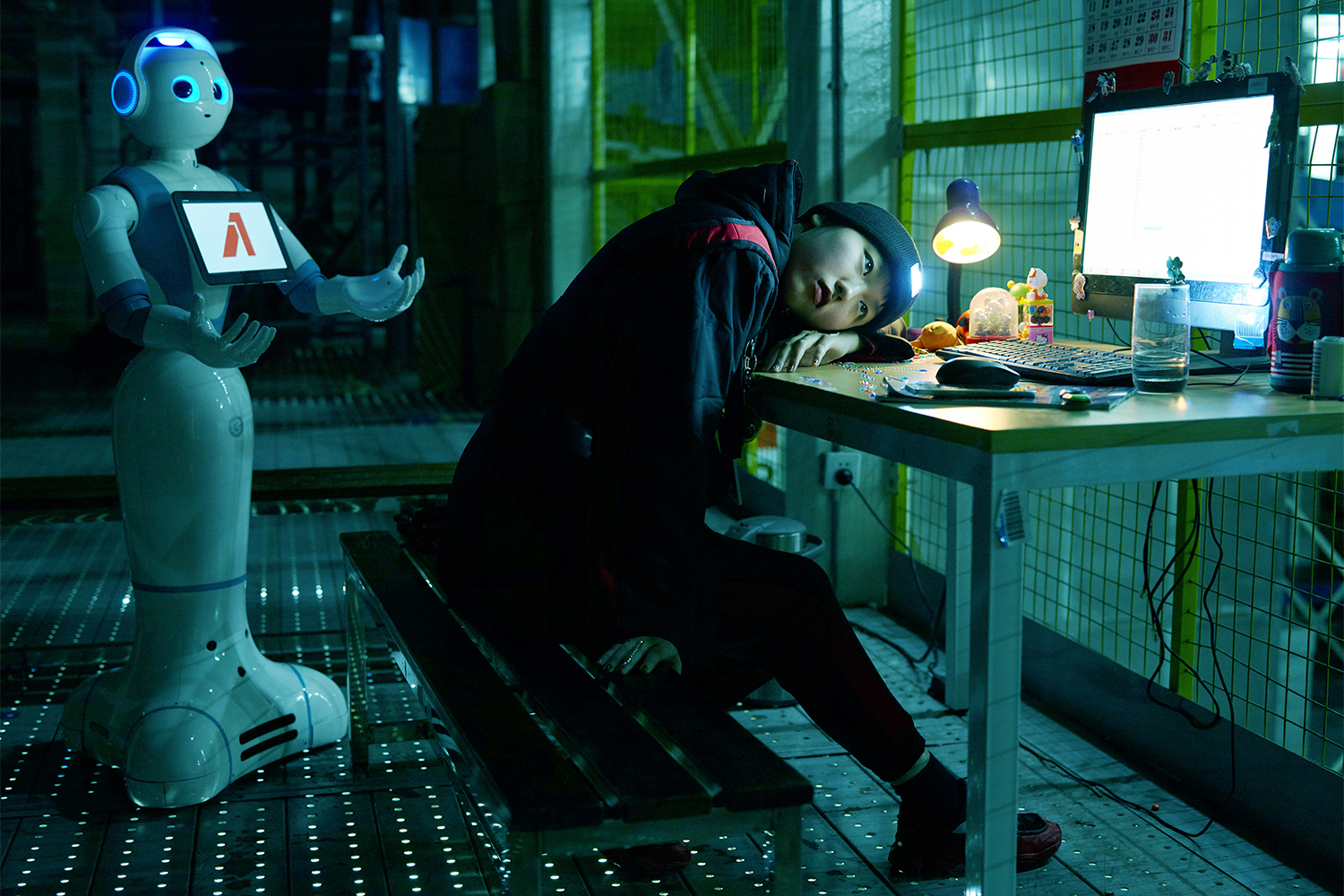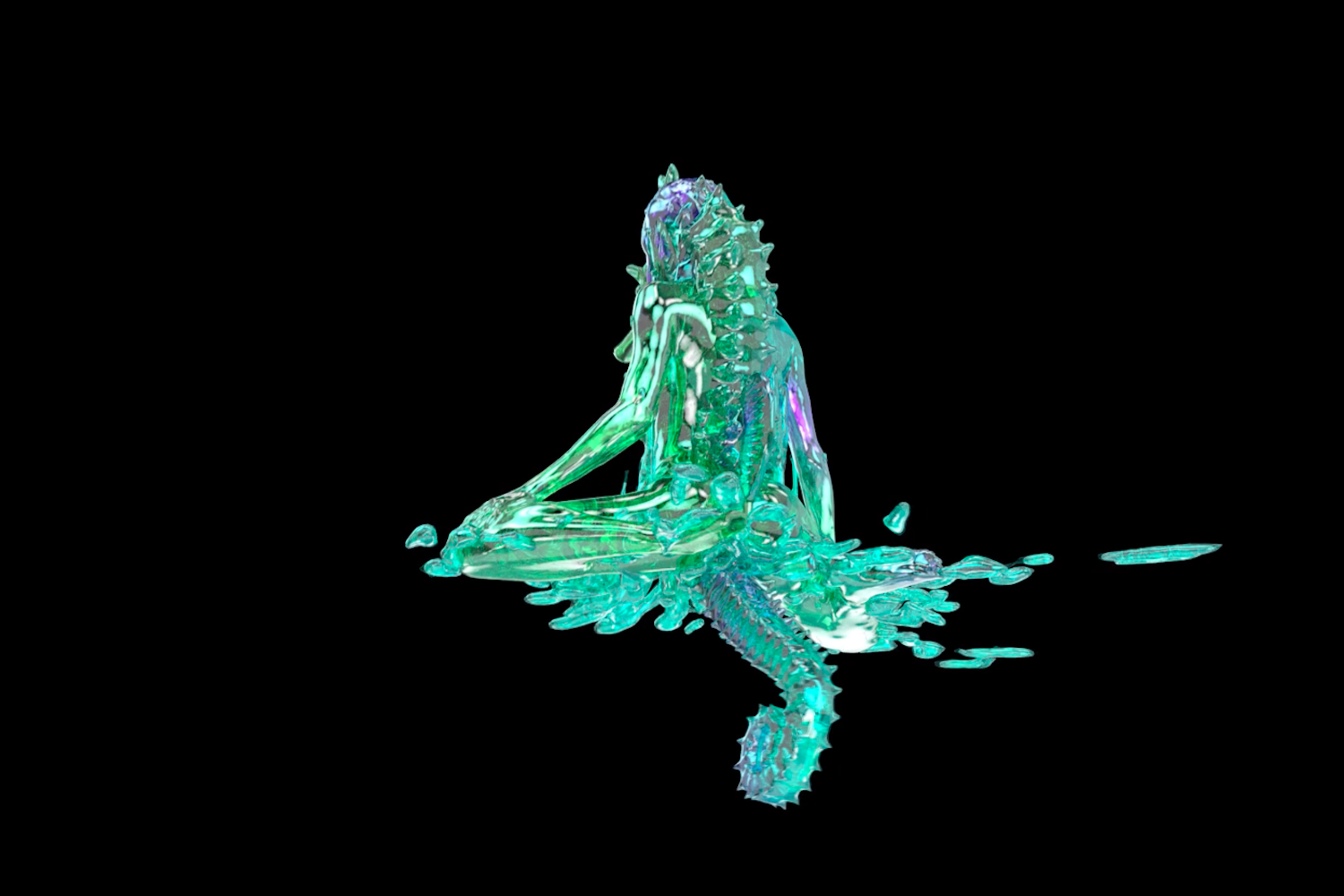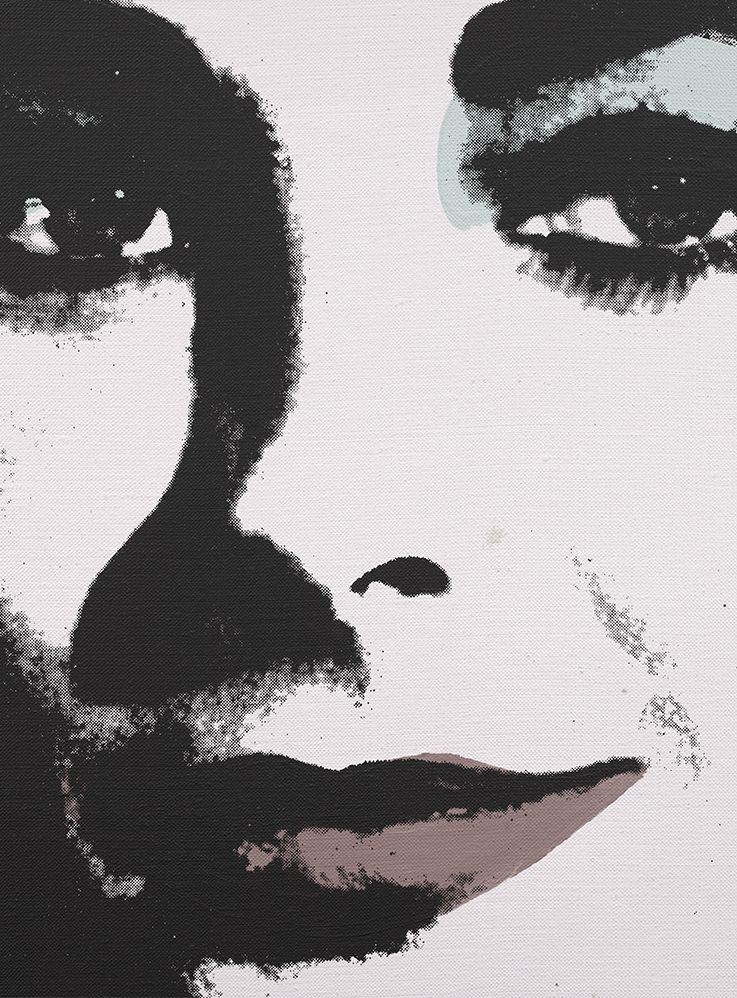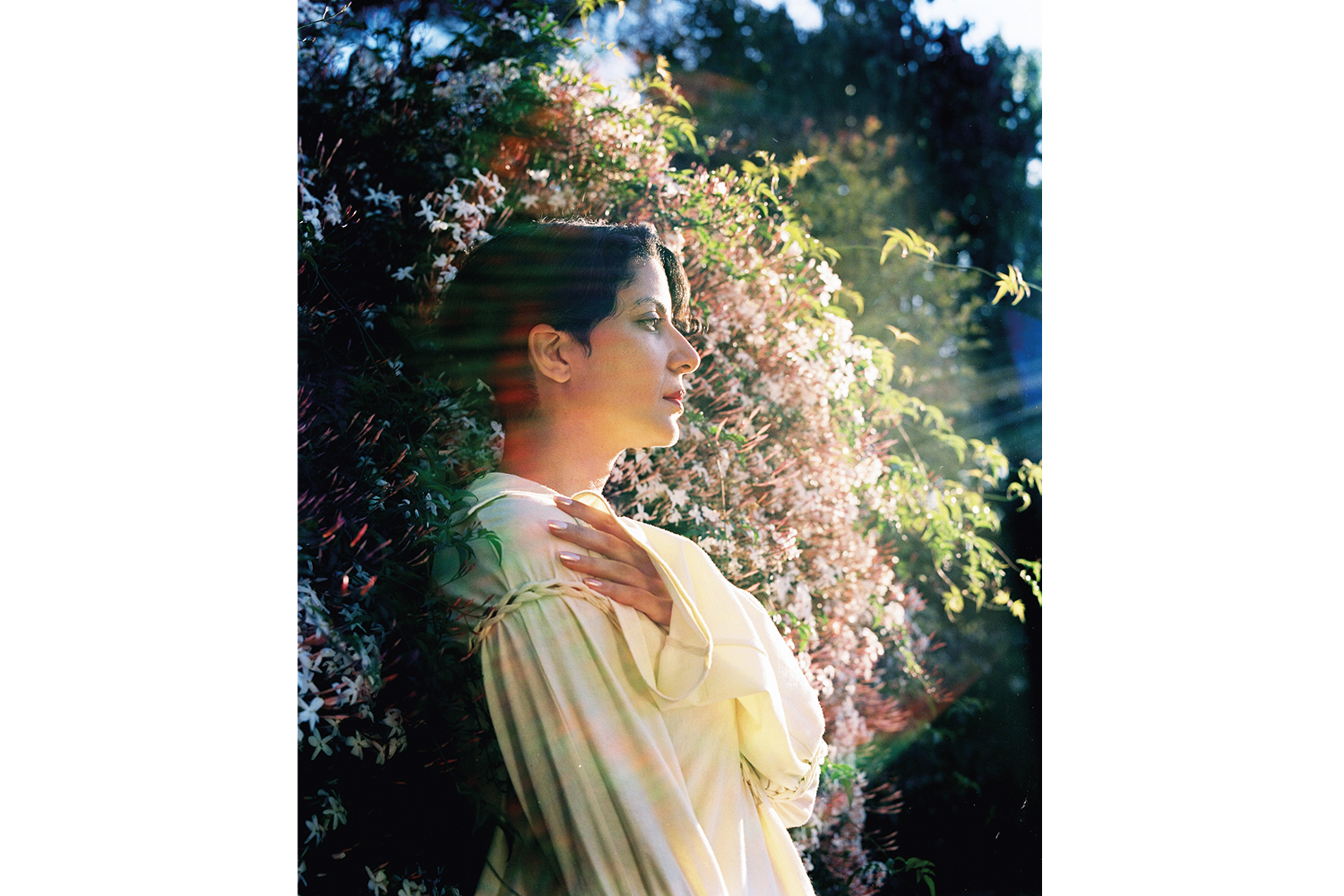
Andrea Lissoni: How are you doing?
Fatima Al Qadiri: I’m good. I just finished a big project, so it’s my first week of recovery.
AL: Is it something that is going to be public or is it something for you? I’m just curious. Is it a film?
FAQ: It will be public, because it’s a film, and is coming out this year. Basically I just finished writing a score for a Spanish horror film. And it really kicked my ass. I think also writing a score for a horror movie at this time — it’s already so intense, the situation, the reality. The experience really pushed me over the edge.
AL: Must be so bizarre, because it’s actually true. I remember one year ago — also when I got the virus myself — it was actually a horror movie. There was no better cinematic form to describe what was going on. That sense of fear, of something growing in you, and the control room, and “the door” as a border: open the door/don’t open the door. So it’s quite interesting you’re talking about this now, the horror movie.
FAQ: Yeah. The film is about the horror of aging, which, obviously, for all the old people that were at risk for the virus… It’s called La Abuela [the grandmother]. The beginning of the film takes place during Paris Fashion Week, and it’s about this model, she’s young, full of life. And all of a sudden she has to go back to Madrid to take care of her dying grandmother, and then the horror starts. But it’s funny, the fashion week, modeling and fashion industry aspect: I’m obviously friends with many fashion designers and have worked in fashion, so it was interesting that he came to it from this angle, the director. His name is Paco Plaza. I really like the premise of making a horror film about aging, because most of the time it’s always about vampires. I’m thinking of The Hunger. Even though there is a supernatural element to La Abuela, it’s not about a vampire.
AL: I don’t remember when, but I read a beautiful conversation between Negar Azimi, yourself, and Mati Diop. There’s a moment when the horror movie comes up and, tangentially, the origins of the zombie is mentioned…
FAQ: Oh, the thing is with the word zombie — I don’t think of the girls as zombies in the film because I see them as possessed by jinn. So I think that the “zombie” element is a Western transliteration, but in terms of Senegal and in terms of how Mati also thought of it, it’s a possession by the dead spirits of the boys at sea.
AL: I was very surprised by that figure. Of course, I wasn’t aware of jinn. Is it really present? It was not clear to me. I mean, sometimes there was an apparition of jinn, and you and Mati were both agreeing on it, but I got lost.
FAQ: I think the thing that we understood between us is that the concept of possession by jinn is common in Islam, but when the film went to Cannes and was seen by Western audiences, it was translated loosely as whatever, or Western commentators called these characters “zombies” because they’re not familiar with jinn possession. One of the main delights of working on this project was this aspect of Senegalese culture, because it’s the same in Kuwaiti culture.
AL: Let’s say I struggle to ask anything about sound because that’s not the way I think. Rather, I feel. I’m a listener. Maybe I’m passionate listener. There’s a beautiful connection I happened to encounter, and you were present in both situations: because I actually left Munich the day before the opening of Monira’s Holy Quarter in January 2020, and both the work and its score stayed with me quite a lot. I went to Rotterdam the day after, and the second day there I watched Atlantics (2019) for the first time on a big screen. I’m an old-fashion person; I like to see movies on a big screen.
I was quite impressed by the fact that you were there so much in both. I was wondering if there’s anything you want to say about Holy Quarter? It’s funny because when I listened to Medieval Femme (2021), I was surprised because it had a Holy Quarter sound to me. I really had this echo in my mind, but of course I couldn’t double-check because I don’t have the Holy Quarter soundtrack — I mean, it’s just based on my memory. Is there any possible bridge between the Holy Quarter score and Medieval Femme?
FAQ: There isn’t a bridge because when Monira was making the film, in 2019, she asked me for music and I had five tracks that were made in a science-fiction vein, and I knew they weren’t going anywhere, I wasn’t going to use them for anything. And I thought these tracks could have worked for the scenario she was going to film, and they’re 99.9% digital choir. That’s the main “instrument” in the Holy Quarter soundtrack, and there is one small choir sound in Medieval Femme. Otherwise, the album vocals are live plus one sample of a poetry recitation, so from my perspective it’s completely different.
AL: So, I just had sonic hallucinations then. You mentioned something I was very curious about: listening to Medieval Femme, I noticed the presence of the voice. I was wondering whether it was your voice — in another track as well, I think it’s “Golden.”
FAQ: Yeah, “Golden” is my voice also.
AL: Clearly. And this is a basic question: Where does it come from? Why did you decide to put all this together?
FAQ: I mean, the idea for this album started in 2016. Sometimes, when I create albums, the title comes to me first. I thought of the idea to create some kind of medieval fantasy album that’s rooted in the sensuality of depression. And then I put it to the side because I didn’t know exactly what I wanted to do, how I wanted to manifest it musically. I bought a book, Classical Poems by Arab Women, edited by Abdullah Udhari, and it’s both in Arabic and English — it’s from the Jahiliyya period, the pre-Islamic period to the thirteenth century.
While I was reading it, I started realizing that the recitation of Arabic poetry is very sensual regardless of the subject matter, regardless of whether it’s an elegy, or praise, or whatever. There’s so many genres of poetry in classical Arabic. And I was reading specifically the poems of Al-Khansā, who was a seventh-century poet known for her elegies, she really illuminated this contradiction between sensual delivery and her grief-laden words. The only classical poem that stayed in the album is on the ninth track, “Tasakuba,” which is from her poetry recited by Kaltham Jassim. This is a sample that I found online, from an educational YouTube channel dedicated to classical Arabic literature. And the lyrics were so beautiful. It’s a small couplet that I repeated, where she’s addressing her eye. She’s talking to her eye, which I think is extremely surreal for seventh-century poetry. It’s super experimental, for me.
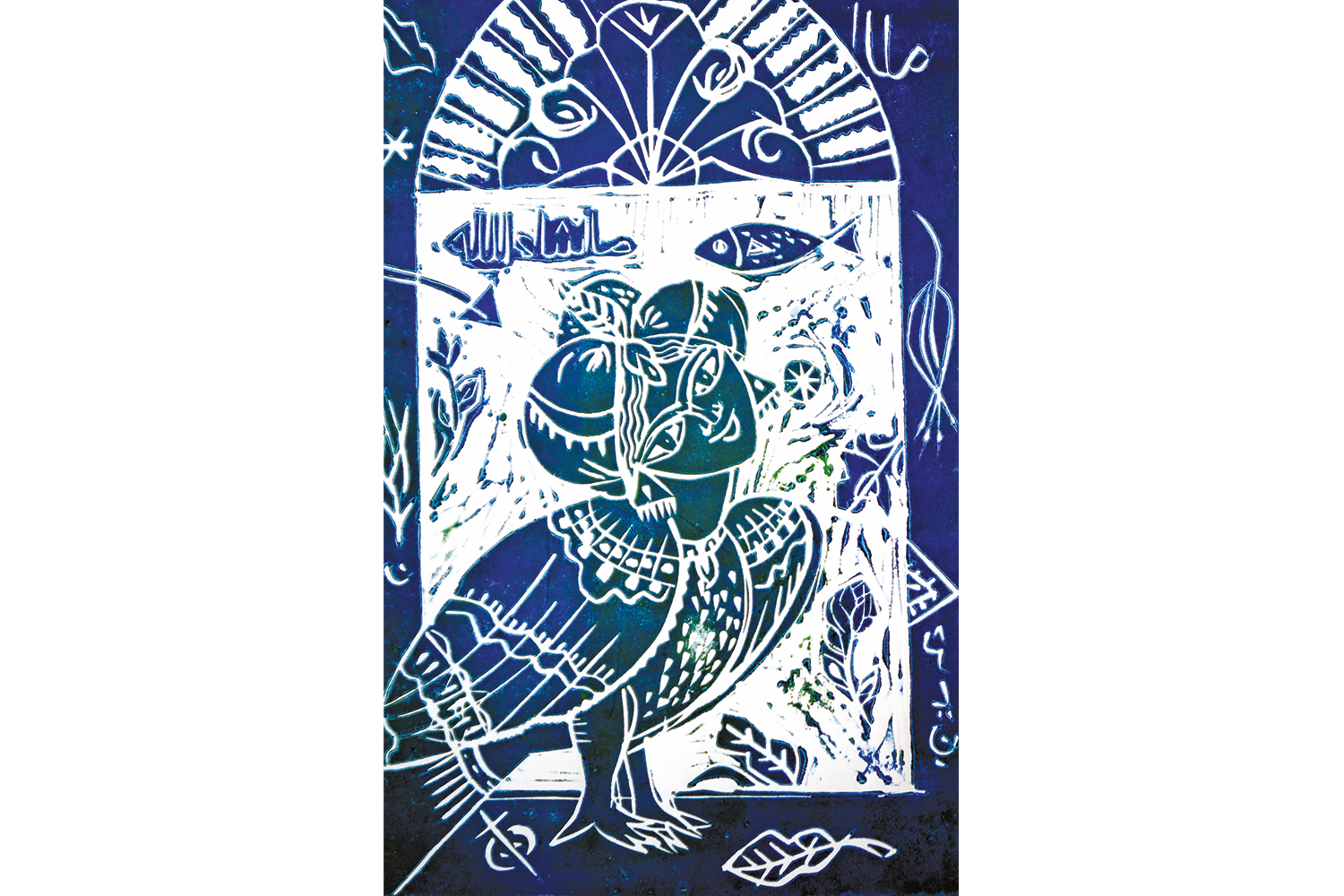
AL: That’s why when one listens to the track, one has the feeling of a dialogue. I mean, I had a clear feeling of a dialogue.
FAQ: Yeah, I mean, she says, “Oh my eye, why do you not weep like a waterfall? At these desolating times, a time that is desolate.” So much of her poetry is about despair, but the delivery of her poetry and all Arabic poetry is really super sensual, so it started the wheels turning in my brain about the possession-like nature of depression and its relationship to longing, to desire, and how depression is basically desire stopping you in your tracks, hijacking your body, and making everything stop. Somehow, it’s like a transformative state. I was really trying to look at it as the supreme state of transformation. It’s not birth and not death, it’s depression. And it can be a way to really engage in longing with yourself. I started remembering when I was a teenager — I had a very traumatic experience and was really under extreme depression. And I didn’t seek treatment for it until age thirty-two. And I used to fantasize about being in historical places. This medieval fantasy was also my personal fantasy as a teenager, so I really wanted to reflect that in sound. I wanted to reflect my personal history, and somehow the history of these classical poems, into a contemporary sonic form.
AL: This is very touching. I made some random listening notes, and the one note says, “deep hole/depression/volcano.” And I think that was what made me associate emotionally with Holy Quarter, a majestic work in a desert area, a huge crater. The way you are describing depression — I’m unfortunately aware due to family reasons — is striking; there is something that I feel about getting down, getting synced, but with joy, sort of. It took me physically, haptically down. I was literally spiraling down, but I didn’t have any sensation of sorrow, if you see what I mean. It’s a strange sculptural perception I have when I’m just listening. I got completely blown away by “Zandaq,” which I kept playing extensively. It’s a really incredible track. And how do you make an album? Are you working on different tracks at the same moment? Or choosing when they are made and compiling them in a sequence?
FAQ: No, when I started genuinely writing, there were two tracks that existed as drafts. “Tasakuba,” the ninth track, and “Golden.” “Golden” was written in 2009 in its initial draft. It wasn’t a finished track, but it existed from 2009 and I always knew it was going somewhere. I’m not abandoning this track. It’s part of a whole, but I have no idea what it is. Medieval Femme didn’t even exist as an idea in 2009. And then “Tasakuba” was written in a moment when I was writing a lot of different ideas and I didn’t know where they were going. It almost went into Mati’s film. Mati initially was going to make a prologue for Atlantics, and the instrumental version of “Tasakuba” was going to be part of the film, but she decided not to keep the prologue. She decided to just start the film.
The prologue was very beautiful actually, I have to say. I hope she archives it, puts it up as an extra or something for the film. And so, Atlantics, when it came out, and then when the Grand Prix happened, the film went on a crazy world tour of different film festivals. I went to the last one at the end of November in LA. And that was my last stop on the world tour of Atlantics. But Mati continued until the end of February.
AL: Well, I watched it at the Rotterdam Film Festival in early February. It’s was like maybe nine, ten months after the release. And the film was still there.
FAQ: Like I said, the world tour was film festivals. In mid-December 2019, I started really writing the album because I needed to start executing this idea. So I wrote some of the instrumentals, and then around January it was clear that I was moving to LA. So then I stopped writing and arrived in LA on March 6, and around one week later the city shut down. And this is when I really started writing this album, and it was actually the perfect time because it’s like the world stopped, and I went into this extreme sense of isolation that you get, and everybody was depressed. And I felt so vulnerable because I had emphysema years ago. I went to the emergency room with chest pains in the last two years. I was terrified out of my skull of this virus. I wrote the majority of this album in a loft in the Arts District in LA — I don’t know if you’re familiar with that area. Very desolate, very concrete, no greenery. There weren’t other souls walking the streets. So it was just like it had a feeling of the post-apocalypse to it. I think that most cities in the world had that feeling because everything came to a screeching halt. I think that if LA was in full swing, or non-pandemic times, maybe it would have taken a lot longer to write this record. Then I moved to a house in Glassell Park, a suburb-like neighborhood, and there I started putting the finishing touches on the record and was able to kind of glimpse the end of the process.
AL: How do you give form to the sequence? This a question I’m curious to ask you as an artist, not a musician, if that makes sense.
FAQ: I make many tracks and then I start to remove. It’s a process of deletion and refinement. For instance, the fifth track, “Stolen Kiss of a Succubus,” this was written once, finished in one go. It was improvised. It was written at 4:00 in the morning in Kuwait and never edited — it was ready to go. This cannot be said for any other track on the album. It’s just that one.
AL: Well, when one listens to a track on SoundCloud, one also sees the waveform, which is clearly what a musician sees when composing, and normally, of course, a listener doesn’t. “Stolen Kiss of a Succubus” has got such a specific simple pattern, like up, down, up, down — a pristine wave. Did you know where it would end? How do you move from thinking, okay, there’s “Vanity,” then comes “Stolen Kiss of a Succubus”?
FAQ: I always think that there is some kind of sonic narrative. “Medieval Femme,” the first track, I feel like it casts a spell, and the second track, now you’re in my world, let me show you the corridors. When I think of the second track, I’m moving through the corridors of the palace. I’m moving through the Alhambra, because when I think of the space of this record, it’s like the ultimate Islamic palatial garden, which for me is extremely decorative, gorgeous.
It’s the garden of the Alhambra, of these kinds of medieval palaces in the Iberian Peninsula, or a courtyard in Marrakesh. These are the kinds of spaces that I would fantasize as a teenager to be inside, because, as you can also imagine, Kuwait is so dry and hot. And the environment and the spaces are quite clinical and uninspiring. There’s little fantasy. It’s really lacking in vegetation. Because also, heaven and paradise in Islam is a garden called The Jannah — like the Garden of Eden in the Bible.
When I think of going to heaven, I think of going to a garden. When I read the Qur’an — this is my interpretation — I’m going to a garden. So any time I went, as a child, as a teenager, to a country with extreme vegetation, I felt like I was tripping. I felt like I had taken mushrooms and was hallucinating because I’m not used to this level of greenery. And I’m reminded of heaven. I’m reminded of The Jannah.
AL: Yeah. I think the entire album really transmits this feeling. I’m specialized in a very specific moment of art history, the sixteenth century, gardens and in particular artificial grottoes. I can confirm that the specific feeling you just described comes through without even reading anything: an enclosure, rich, very well designed, with not so much room for disorder but so much for pensiveness.
FAQ: I wanted it to feel very distanced because it’s a fantasy. I wanted it to sound as distant as humanly possible. And I think, actually, the parts of it that don’t sound distant are the distortion, where the distortion is really loud. And for me, that’s “Golden.” “Golden” is the one point in the album where it’s like reality is trying to pull you back. The pain is trying to pull you back to the surface. Like you’ve gone down the hole, it’s a very beautiful hole that you’ve made for yourself, but it’s like somebody is trying to pull you back up. And then you keep going down again, and that fantasy element had to be distant sounding. And that’s mainly achieved with reverb. There’s a lot of reverb on this record, specifically to have this sense of fantasy.
AL: I see. I don’t know the correct term, but there is something I will call pizzicato.
FAQ: For sure, pizzicato. I think the pizzicato element comes from the tanbur, qanun, and oud elements. These are ancient string instruments that are still played today. I’ve always wanted to work with them, but I didn’t know how. I didn’t want to make something that just sounded like… it’s very hard to make something contemporary out of these instruments. It’s a real challenge because, most of its time, it ends up sounding like folk meets electronic, which I think is a disaster. I really don’t like that music.
AL: I see what you mean. It’s what you define as “world” in your conversation with Mati and Negar, like that kind of world music, right?
FAQ: Exactly. Some of that music is really cool obviously, but I think the combination of folk and electronic music is the most difficult thing to get right. And not to say that I was trying to do that. The tanbur, for instance, is a Mesopotamian instrument, it’s not even Arab. It’s older than Arabic poetry. This is an ancient instrument, and I just experimented with it. I improvise everything and keep refining it as I’m writing. And this is why I introduced synths in the tracks with the tanbur and the qanun and the oud. It’s just to combine them in a way that makes sense to me. Or in a way that sounds like it’s a contemporary person having a medieval fantasy.
AL: It definitely works very well. I actually love it. I kept listening to it endlessly. Of course, eventually I couldn’t avoid the bridge to Atlantics, and then I started listening to it too. I would say that the feeling of “distance” in Medieval Femme corresponds to one of “suspension” in Atlantics. I feel like something is floating. I wrote the word “suspension” in each song’s note. How did you generate this slightly uncanny anti-gravity state?
FAQ: You’re very right, and put it very accurately. When I was writing the score for Atlantics, basically Mati really pushed me in a direction — this direction of fragility and vulnerability, which had touched my music before but not as a whole work. One track here, one track there — it existed but it didn’t have primacy. So, Atlantics was the door that she opened for me in order to make Medieval Femme. I don’t think Medieval Femme would exist sonically, as it is now, had she not pushed me in the direction that she did with Atlantics. She kept saying, “You have to make music that doesn’t overwhelm the characters on the screen. I want to feel their fragility. I want to feel their vulnerability.” If this record is dedicated to anyone, it’s dedicated to her. She really is a big inspiration for this record.
AL: This is really what makes me think that there was something softly moaning, like an echo. Holy Quarter’s score reverberates, but the whole emanates an idea of deep monumentality — a sort of negative monumentality.
FAQ: Yeah. I wrote all the tracks on Holy Quarter as a sci-fi record. I was writing them as an outer space musical. So that’s why, when Monira asked me for music for Holy Quarter, and she told me where she was filming and what it looked like, I thought that music would work for her.
AL: It’s true. The gaze floats. There is a sort of semi-human machinery hovering on the sand, on the desert’s dust. In that sense, it’s deeply monumental. There is nothing, but you feel it in its powerful entropy.
FAQ: It helps that it looks like another planet. It looks like the surface of Jupiter. It’s really like NASA imagery. It’s crazy.
AL: Totally. Whilst in Atlantics there’s voices. I was touched by the way you never situate voices: sometimes they are above, sometimes they are in front, sometimes they’re underneath. I didn’t have the feeling of being in front of voices. I felt instead surrounded by ghostly creatures. It’s definitely uncanny if one ponders how the voice is typically set to music, be it pop or not. It’s like strange waves, rippling peacefully due to unconventional streams. I don’t know how to describe it. I can only evoke mumbling physicality.
FAQ: Well, you’re right. And I think this is also the case with the creation of distance. I’m really fascinated by things that you think you’re hearing, but you think your mind is playing tricks on you. For me, this is one of the most fascinating things that I think about songs. So many times in my life, I’ve thought I heard a sound from another world. Then I spend the rest of my life replaying this moment in my brain, and it’s always a voice.
AL: Interesting. Well, I can’t avoid asking you about that incredible, let’s say, dystopic assembly of voices that is “Yelwa Procession.” When it started playing I had really no idea what it was. I love “Yelwa Procession,” but I don’t know how to define it, and I have no memory of the sequence it is in dialogue with in the movie. How did you make it?
FAQ: It’s the wedding procession. It’s funny because when Mati was shooting the film, she asked me for a folder of unreleased music, as a point of inspiration if she should shoot anything to the music. And I gave her “Yelwa,” a track made in 2007 but never released. And when she showed me the rough version of the film, she was hesitant. She told me, “I did something to one of your tracks. Don’t kill me.” She was concerned I would be angry that she did an edit. Basically, she looped the intro of the track over and over again. That was her ingenuity as an editor, as a sound editor. She looped it. And then, she had the women coming out of their cars, clapping. And, as we say in English, ululating. So the women are clapping and ululating to the music. I just thought that she has a really exceptional ear. I would have never thought of looping the intro of this track over this sequence. Mati used to do sonic mixes for dance and theater performance. So she’s not coming at this just from a directorial point of view, but also as a selector.
AL: Yeah, I see. So this is a track that could be co-credited.
FAQ: I mean, she created the loop. I would have not known to loop it. And then, for the album, I kept the woman’s voices in the sequence of the music and changed something here and there. But overall, it stayed almost intact.
AL: What a humble way to describe collaboration in its most pristine meaning. It is so rare, and beautiful.
FAQ: I think the most beautiful thing about this project is that we met as complete strangers. And now she’s one of my closest friends. We went through this process and became like sisters. I think it’s not common, probably, in the film industry, that you have this experience between a composer and a director.
AL: Fantastic. I mean, from what you are describing, it looks so sincere and pristine. I mean, collaboration is too often overplayed if not tokenized.
FAQ: It’s amazing. Like I told you, I wouldn’t have made such a minimal soundtrack. And really imagined this fragility — she opened the door for me. Really, she did. This door was there, it was locked, and she unlocked it.
AL: And what a pike dive from Shaneera.
FAQ: Oh, no, Shaneera also existed from 2011 as an idea. I knew I wanted to make a really crazy dance record that had the spirit of the queer Arab world infused into it. So, it also took me a number of years to make it. There’s a lot of album names that I have in my mind that I know I will make at some point in the future.
AL: Astonishing how you meander in your own repertoire. Actually, I was more referring to the fact that she’s a very frontal character. It’s like characters are more faded — present but like a wave, a wake of scent…
FAQ: Yes. It’s very extreme. It’s a big leap. But in the middle you have Atlantics. That was the transition.
AL: We went — or still are going through — a long unexpected time of receiving, or at least this is how I understand it: being exposed to, incorporating, becoming host… and in the cultural field where images have been so dominant, the mode of listening and reading appeared as extraordinarily precious resources. Well, either deep readings or deep listening. In my case, it was very much deep listening. I never listened so much to music in my life as in the last year. Ever. I was very glad to encounter Medieval Femme. I did not encounter anything else so creatively inspiring and unexpected in this long period. I’ve been taken so much by any form of ambient music in the last months. Sometimes dark, sometimes almost spiritual, some ’90s ambient veins, parasited by lines of distorted field recordings glued in glimpses of spoken words appearing here and there. This happens when you want to go against that passionately oriented mode of listening — I just jumped and danced among clouds of energy, like afrobeats and any form of reggaeton. And it’s like, so troubling when you encounter something that you do not expect at all that leads you out off the trail. Speaking of which, what’s it like for you to be in LA?
FAQ: The one thing that actually really kills me is the distance between LA and Kuwait. Both my sisters are in Europe. That’s not so bad, but the distance to Kuwait is really heartbreaking for me. This is the one thing I don’t know how much longer I can handle. But especially as my parents are getting older…
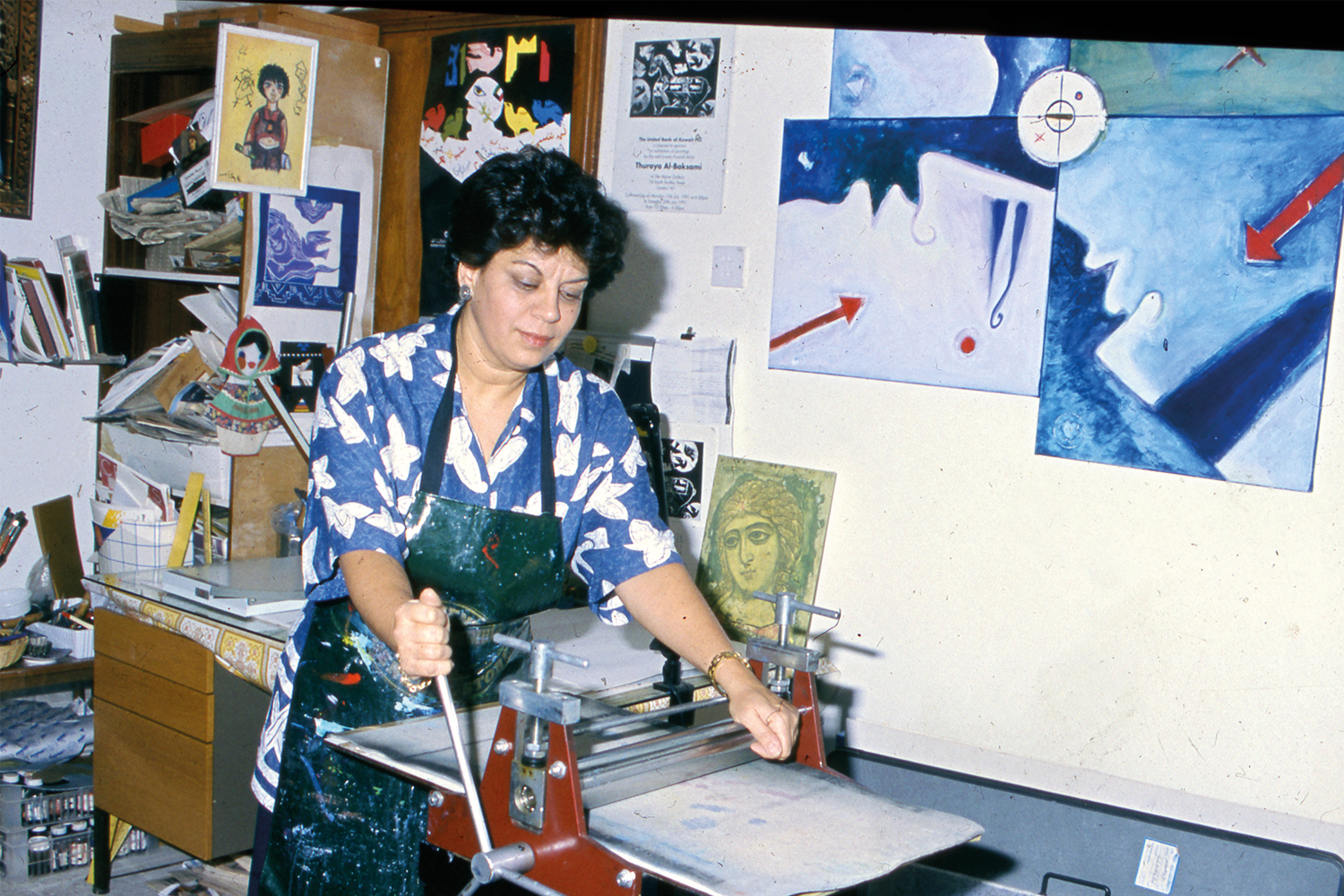
AL: I remember I met your mother, Thuraya Al-Baqsami, twice, once in London, at Gasworks. Her enthusiasm is unforgettable. It’s her work on the cover of Medieval Femme, isn’t it?
FAQ: I had a renewed appreciation for my mother’s artwork when she did a big retrospective show at the Sharjah Art Museum in 2017. And I was able to see all the decades of her work in one space. When I started writing the record in Kuwait, in December 2019, I definitely wanted one of her linocuts to be the cover, because this is my favorite of her printmaking techniques. And there’s something very ’70s about it.
AL: So, is the artwork the blue square containing the woman’s head and the bird on her shoulder?
FAQ: Yes, but the original work is slightly different. It’s just to make the image more 3-D, let’s say. But the original is almost the same, it just looks more like a print. It’s really crazy: the work is called Message I, and she made it two weeks before the invasion of Kuwait. She had a premonition about something…
AL: I was wondering. Is it actually 1990, literally the year before?
FAQ: No, it’s the year of the invasion, the invasion was August 2, 1990. She made this two weeks prior, and my mother is a psychic woman. She had this premonition. She made two works. This is one of them. And when I look at this figure, she has such an enigmatic look on her face. There’s no iris, it’s just this blank eye. She could be in pain, she could be ecstatic. I really felt like you could feel this dark desire in her. And that’s why I chose that artwork as the cover of the album, because she felt like someone who’s receding into the background. You can’t reach her. Which is what I think of people when they fall into a very deep depression. They’re inaccessible.
AL: Yeah, she has this incredible energy. Now, when you were describing this, I had an image in mind of the performance you did in Den Haag. Do you remember that? Ja7eem, the huge projection, that orange sky or sand. And you sitting facing that storm of light on screen and your back to the audience. What kind of music was it?
FAQ: It was unreleased music. I never released it. It was made specifically for the performance. Actually, I think one of the tracks from it is one of the tracks in Holy Quarter. It was only done twice, once at the Barbican and once at Den Haag, and I never did it again because actually I almost fainted in both of them. The amount of flashing lights and smoke. I only did it twice because I was scared of fainting on stage and falling over! I made this soundtrack and Emmanuel Biard did the videos. I told him I’m going to sit in the middle of the stage and give my back to the audience and not move. It was like an endurance performance because the flashing lights were so intense. I’m not so good with flashing lights. And especially if they’re positioned right in front of your face. I closed my eyes throughout the entire performance. It was thirty minutes, eyes closed, on the stage sitting on a chair. It was a weird experience [laughs].
AL: The last time I saw you we didn’t speak. It’s funny because there were also screens in between. I saw Shaneera playing on stage and then for some reason we didn’t meet. I eventually only met you through Holy Quarter and Atlantics, albeit the latter out of time, and we all went in stealth mode. Atlantics appeared at the very likely last big film festival of the year. And so I was like, okay, where is she now that everything is so remote? Then Medieval Femme came. Why did you use “femme,” the French word?
FAQ: I wanted to have this essence of femininity but not make it about cis women — that femininity is, of course, accessible to everyone in a very basic way. It’s to go inside the longing that was expressed by these women in medieval times, and to inhabit it, and learn how to navigate it and use it as a process of healing. This kind of longing still exists today.
AL: So it’s not necessarily the French word. Is it rather a sound?
FAQ: No. I mean, it is and it isn’t. My “femme” is feminine. I wanted to denote the spiritual essence of femininity. It’s basically the complete opposite, let’s say, of toxic masculinity — this very receding, distant disengagement, let’s say, with power and the world. It’s really receding into the inner soul and dreaming.
AL: It really transpires that sensation, that impression. I was struggling to put the two words together, and came to the conclusion that we shouldn’t read them as a phrase, but rather as a sound.
FAQ: Yeah, definitely. It’s not a noun, it’s an adjective.
AL: It was a mesmerizing listening experience. I think it’s the first new album I heard since the pandemic began. I hope it brings listeners to another stage, as it did with me. I’m pretty sure it will. Let’s see what happens. The new horizon.
FAQ: That’s wonderful.

